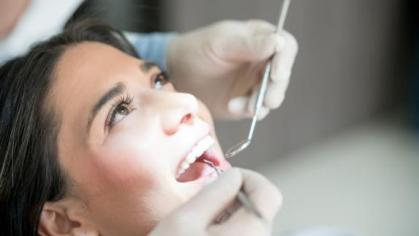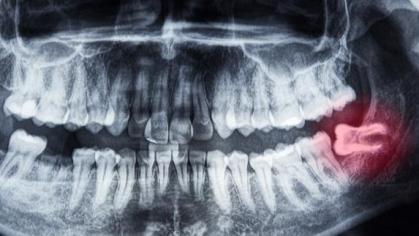Is Your Headache Caused by Orofacial Pain?
Headaches have many causes, from the foods we eat to bright lights, stress, and noise. One common source of headache pain you might not be aware of; however, is orofacial conditions affecting the mouth, teeth, face, and neck. If you’ve tried a number of headache treatments without finding relief, an orofacial pain specialist can help identify the source of your discomfort to make it more manageable or even eliminate it. Here, we’ll take a look at common causes of orofacial headaches and how Rutgers Health University Dental Associates can help.
- Trigeminal Neuralgia
The trigeminal nerve, also known as the fifth cranial nerve, carries sensation from the face to the brain, allowing you to bite, chew, and more. When the nerve’s function is disrupted, usually by pressure from a nearby blood vessel, it can cause severe bolts of pain at even the lightest touch to the face. Applying makeup, brushing your teeth, smiling, or eating can cause intense headaches.
Pressure on the trigeminal nerve has many causes, from aging and facial trauma to tumors and underlying conditions like multiple sclerosis. An orofacial pain specialist can help determine the source of this pressure with a physical exam and diagnostic imaging, and prescription medication often provides relief. In other cases, surgery may be required.
- Temporomandibular Disorders (TMD)
To allow speech, chewing, and other movements of the mouth, the lower jaw is connected to the skull’s temporal bone by a joint known as the temporomandibular joint (TMJ). When functioning normally, the TMJ and surrounding muscles move smoothly and without impediment, bit with improper function of the joints and muscles, painful temporomandibular disorders (TMD) occur. Common causes of TMD include:
- Arthritis
- Facial trauma
- Bruxism, also known as tooth grinding or clenching
- Stress
- Mechanical problems with joint function
Along with difficulty chewing, a locked jaw, clicking sounds, and damage to the teeth, headaches are a common symptom of TMD. Your dentist will perform a physical exam and take x-rays if TMD is suspected, and the treatment will depend on the cause of the condition. You may need to wear a nightguard, seek care for facial trauma, learn techniques for stress management, or see a maxillofacial surgeon.
- Sleep Apnea
When a person experiences sleep apnea, he or she repeatedly stops breathing for short periods as they sleep. Snoring and poor sleep quality are the most common symptoms of sleep apnea, followed by waking up with a headache. This is because when breathing pauses, the brain is deprived of oxygen, widening its blood vessels and causing a risk of heart problems. Headaches and chronic pain occur with disturbed sleet the does not let the body reset important chemicals necessary for everyday function
Because many of the signs of sleep apnea are found in the mouth, your dentist can diagnose this condition and help you get treatment. Worn teeth, scalloped edges on the tongue, and the shape of the palate and throat are all commonly recognized signs. In some cases, you can relieve sleep apnea by quitting smoking or losing weight. Other individuals may require a CPAP machine.
Get Help for Orofacial Headaches
Headache pain is more than a simple annoyance. The discomfort it causes can prove debilitating and have a significant impact on your ability to work, attend school, spend time with family, and enjoy life to the fullest. If you’ve struggled to find relief for headache pain, the orofacial pain specialists at Rutgers Health University Dental Associates can help. Schedule an appointment at our Newark or New Brunswick office to learn more.



